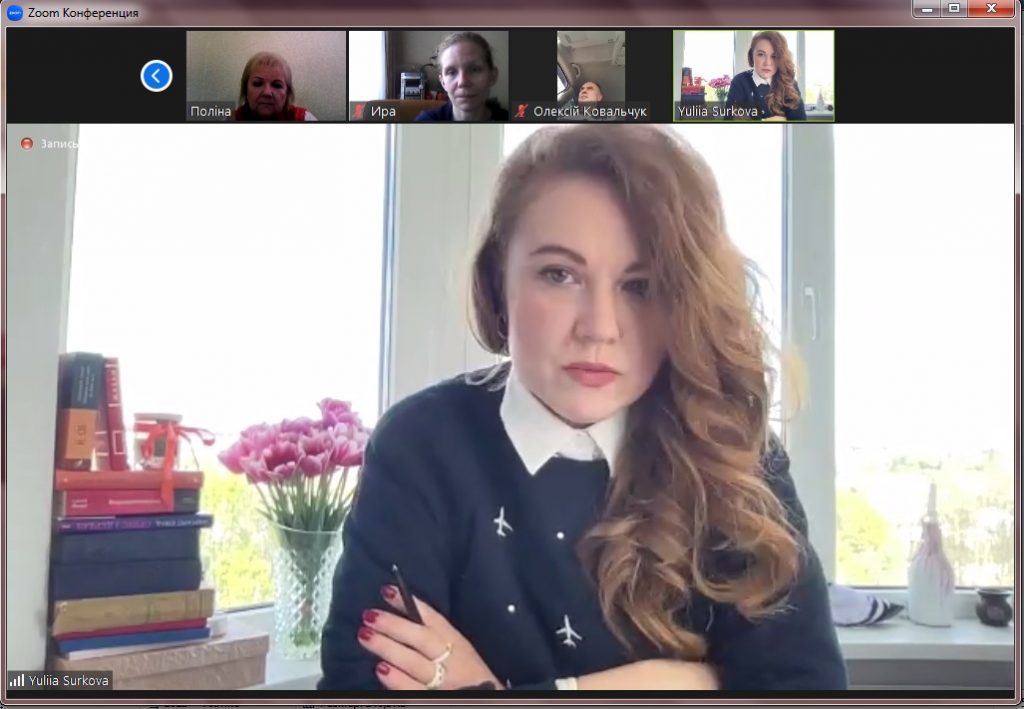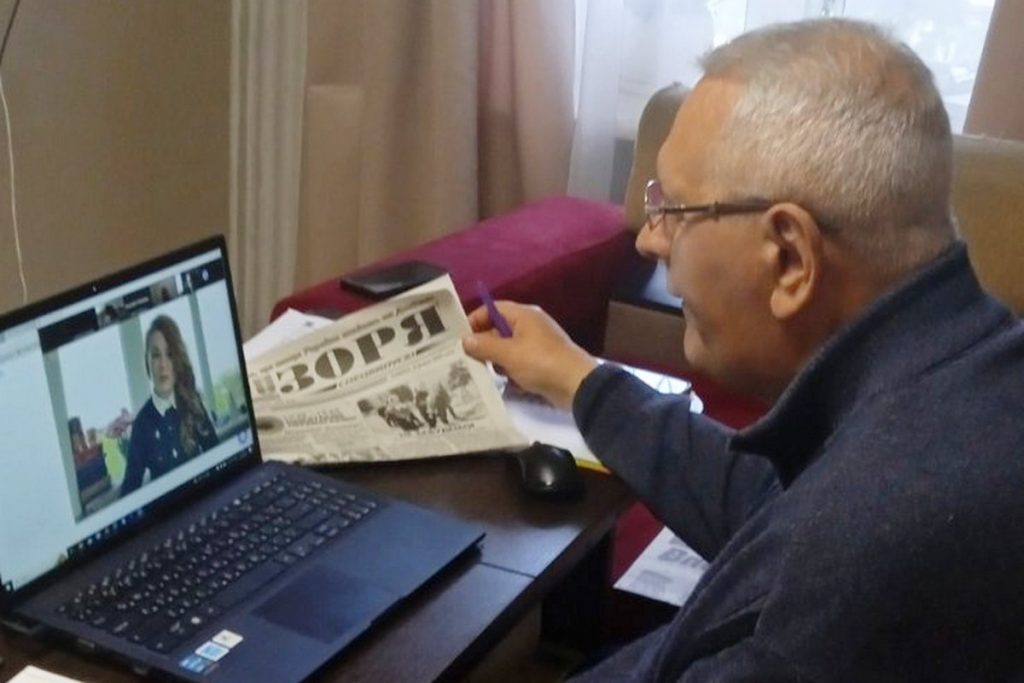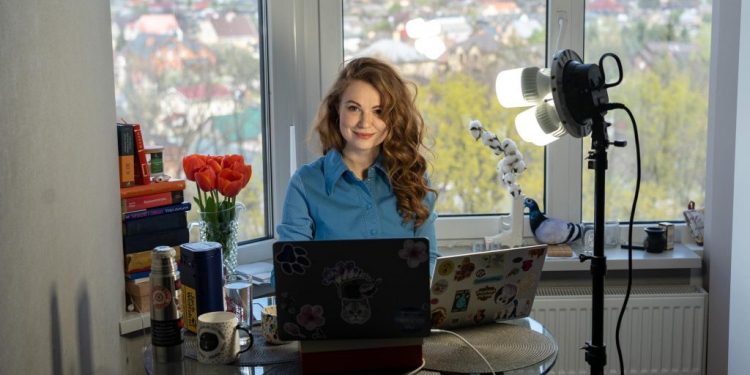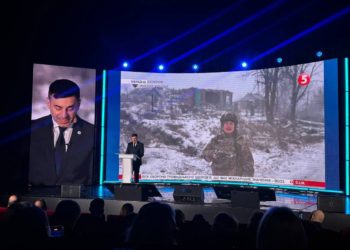Twenty-seven front-line print media are taking part in the educational and awareness project Steps To Sustainable Development conducted in support of local media from the front-line and de-occupied territories implemented by the National Union of Journalists of Ukraine (NUJU) with the support of UNESCO.
The project involves conducting online events (seminars, lectures) on economic stability, forming an idea of the media as a successful business, providing mentoring and consulting support, and developing roadmaps to overcome the war-caused crisis.
“The main thing we want to achieve and why we are conducting this training is to help each publication get back on its feet, modernize approaches to content creation, gain knowledge about digital platforms for media promotion, and search for new opportunities,” NUJU President Sergiy Tomilenko says.
The training program covers three stages:
- The work of local media in war conditions. Ways to achieve economic stability. (Mentor – Kostiantyn Hryhorenko).
- Changes the war brought to content creation. (Mentor – Yuliya Surkova).
- Development of traditional media’s digital platforms. (Mentor – Andrii Yurychko).
The training will last for three months, during which its participants will receive individual consultations with mentors and participate in joint online seminars in each of the specified stages.
“In the coming months, as a mentor of the NUJU training sessions, I will be talking to newsrooms from de-occupied and front-line cities of Ukraine on the topic of how journalism has been changed in the last year,” Yuliya Surkova wrote on the social network. “This is the world’s first war going on online. Soldiers from Bakhmut post battle records from chest cameras, a victim of Russian shelling in Zaporizhzhia posts a selfie from under the rubble of their house, videos of a drone being shot down by passers-by from Maidan [Nezalezhnosti Square in Kyiv] are no worse than videos of news agencies. Print media are physically unable to keep up with Telegram channels and eyewitnesses testifying to what is happening right now. So, it seems that small newspapers no longer have an informational function and need to find a new purpose…”
But it seems to me that in small towns, newspapers, and city publications can become supervisors (senior comrades, mentors) for their communities. To see society’s problems, point them out, help herald them, see achievements and development, show examples of success and inspire through them, see society’s wounds, its pain, and through life stories support, heal and give a sense that your readers are not alone in the woes of this war as well.”

Oleksandr Pasichnyk, the editor-in-chief of the Zoria newspaper (Lyman, Donetsk Region), shared his impressions of the project’s first stage, an online interview with Yuliya Surkova.
“There was a frank and constructive conversation among fellow journalists from Chernihiv, Kharkiv, Kherson, and Donetsk Regions. The journalists found a common direction to saturate the content with today’s events pointed out by the mentor, UNESCO representative Yuliya Surkova. The participants in the first stage are very grateful for Yuliya Surkova‘s professionalism and optimism,” the journalist notes.

As earlier reported, one of NUJU‘s priorities is to help and support the sustainability and stability of local media. So far, thanks to the support of partners, it has already been possible to print at least one issue (as a rule, the first after a long break) of 25 newspapers for the front-line and de-occupied territories of Ukraine.
UNESCO is the United Nations Educational, Scientific, and Cultural Organization. It contributes to peace and security by promoting international cooperation in education, sciences, culture, communication, and information. UNESCO promotes knowledge sharing and the free flow of ideas to accelerate mutual understanding. It is the coordinator of the UN Action Plan on the Safety of Journalists and the Issue of Impunity, which aims to create a free and safe environment for journalists and media workers, thus strengthening peace, democracy, and sustainable development worldwide. UNESCO is working closely with its partner organizations in Ukraine to provide support to journalists on the ground.
The designations employed and the presentation of material throughout this digest do not imply the expression of any opinion whatsoever on the part of UNESCO concerning the legal status of any country, territory, city, or area or its authorities or concerning the delimitation of its frontiers or boundaries.
The authors are responsible for the choice and the presentation of the facts contained in this digest and for the opinions expressed therein, which are not necessarily those of UNESCO and do not commit to the organization.
NUJU Information Service

 THE NATIONAL UNION OF
JOURNALISTS OF UKRAINE
THE NATIONAL UNION OF
JOURNALISTS OF UKRAINE
















Discussion about this post